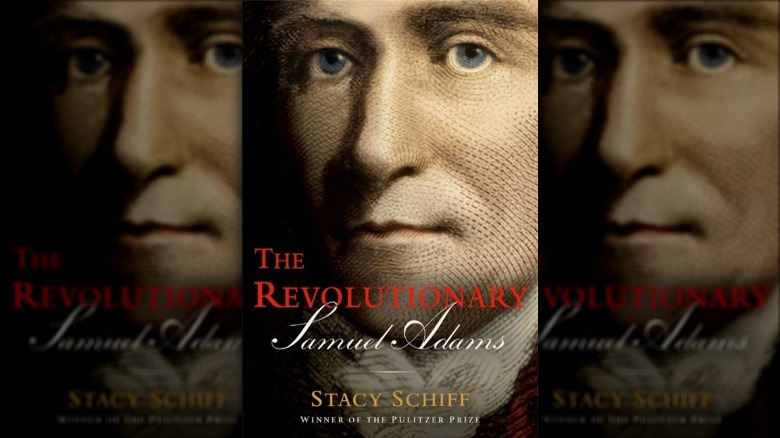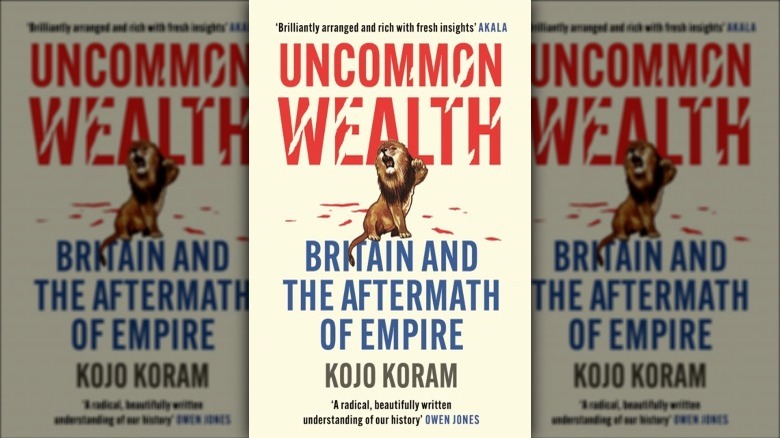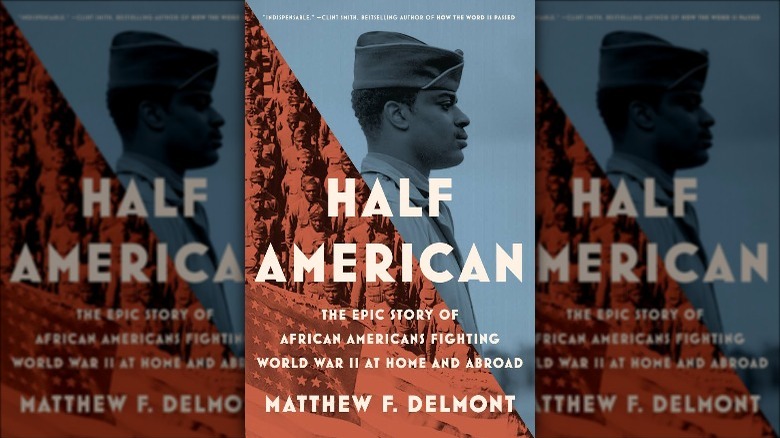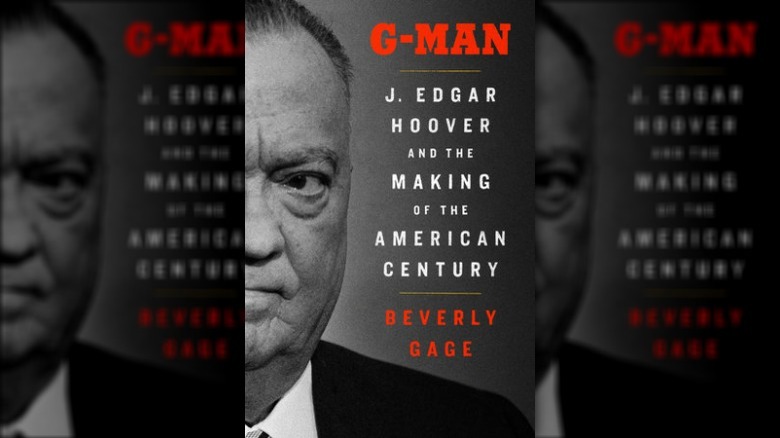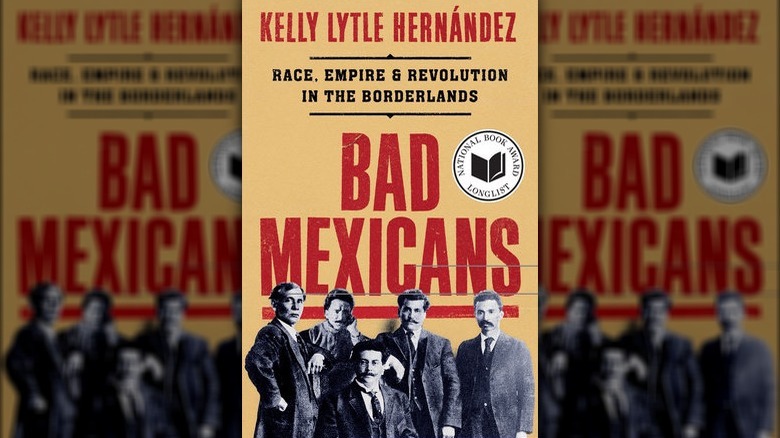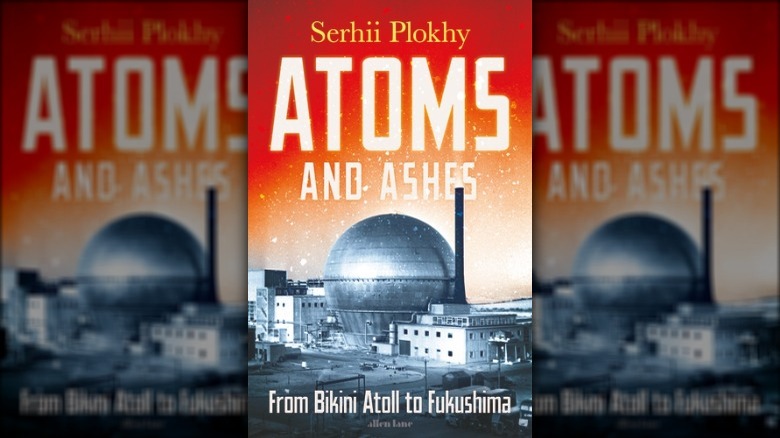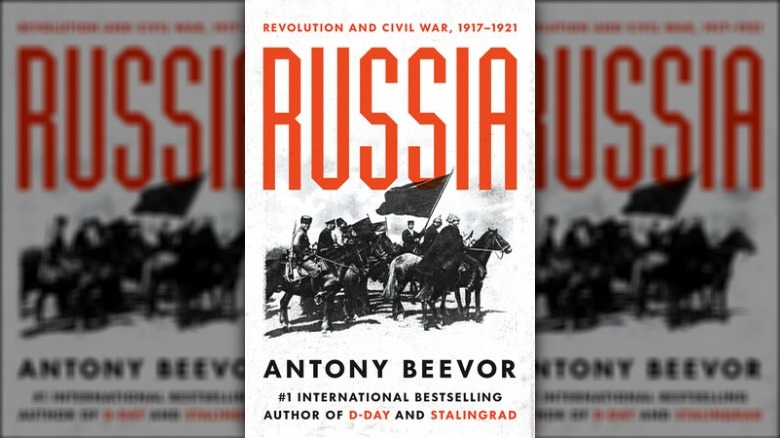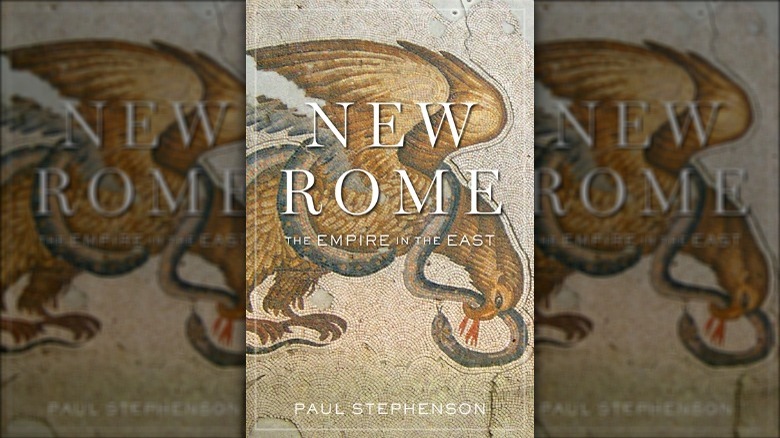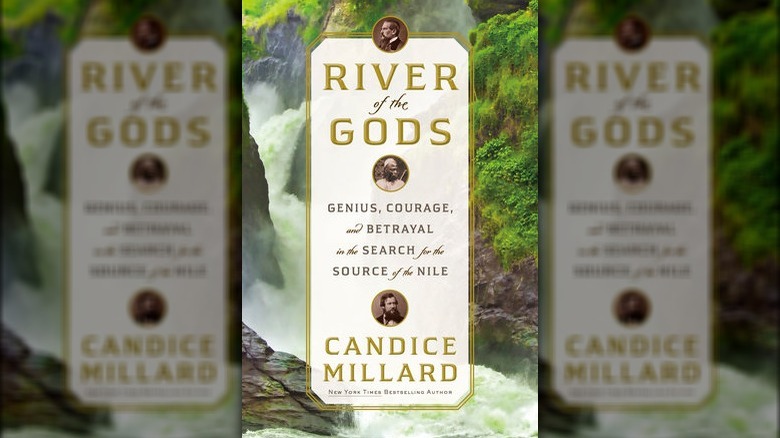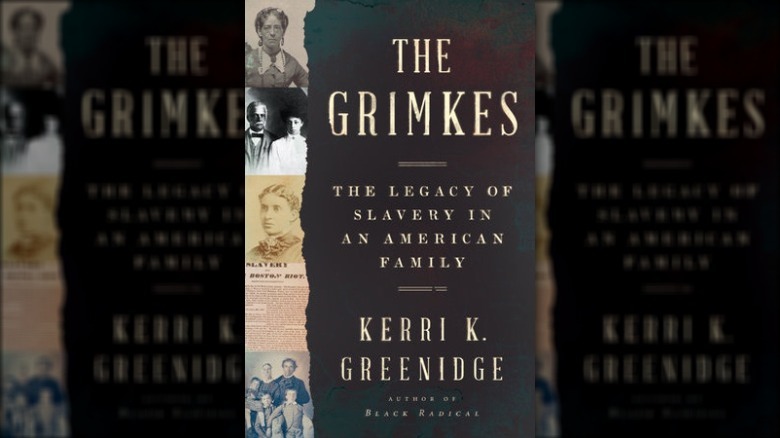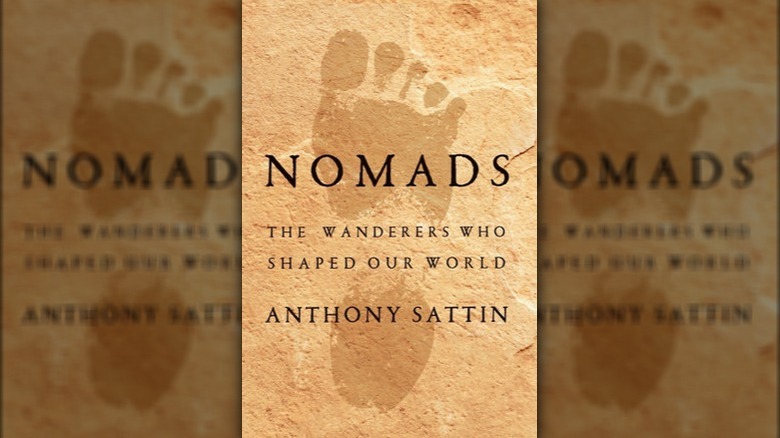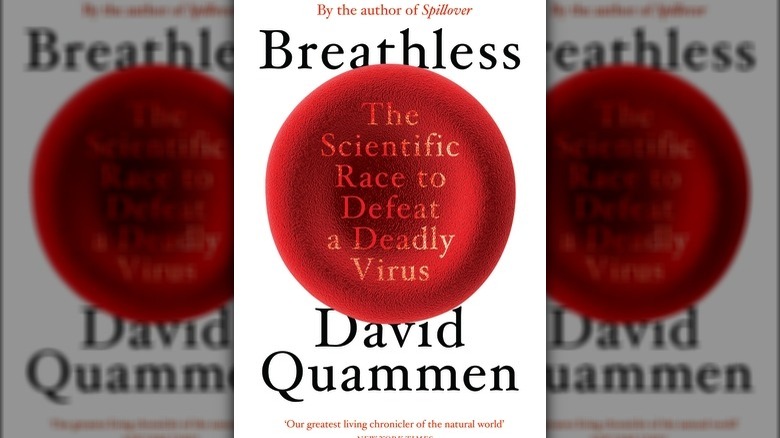The Best History Books Of 2022
"Those who fail to learn from history are condemned to repeat it." These immortal words spoken by Sir Winston Churchill in 1948 have become the go-to phrase when it comes to describing the importance of history as an academic subject, and how a working knowledge of the past — both in our own countries and around the world — is vital both for politicians and world leaders to guide policy and to avoid the mistakes of yesteryear.
But history isn't just a practical subject. As described by the American Historical Association, as well as fulfilling a litany of moral and societal functions, history can be inherently beautiful, a source of incredible stories that can change how we think about the world. "Truth is stranger than fiction," as Mark Twain once observed (via Quote Investigator).
And luckily for readers today, hundreds of newly released history books avoid the dry style of school textbooks and offer informative, fun, and thought-provoking accounts of the world we inhabit, its past, and how it relates to our present-day lives. Here are just a handful of the most fabulous history books in 2022, all of which were critically acclaimed by book reviewers and highly recommended by major outlets, including Time, The Guardian, and Smithsonian Magazine.
The Revolutionary – Stacy Schiff
Samuel Adams is perhaps most remembered today as the name behind a hugely popular American beer, but as a historical figure, he is also of great interest in his own right, as a new book by the Pulitzer Prize-winning essayist and biographer Stacy Schiff attests.
In an enthusiastic review — which also, fittingly, describes Schiff as an enthusiastic writer — NPR notes that the central thrust of Schiff's biography is that Adams is of interest as an American revolutionary, as well as a brewer. According to Schiff, in his capacity as Governor of Massachusetts, Adams was instrumental in laying the groundwork for the American Revolution and setting the stage for his fellow Founding Fathers by being an early advocate for independence from Great Britain.
As noted by The New York Times, Adams is often overlooked in accounts of the foundation of the United States due to his underhand and distasteful methods of bringing his desired revolution to fruition. Per the same source, Schiff's work refocuses the story on Adams, and reveals his central role in the events that formed the country as we know it today in the highly readable and sumptuous style that her readers have come to expect.
Uncommon Wealth: Britain and the Aftermath of Empire – Kojo Koram
The lionization of the British Empire is slowly becoming a thing of the past, as nations around the world come to terms with the atrocious repercussions of colonialism and its effect on the subaltern communities who experienced it.
"Uncommon Wealth: Britain and the Aftermath of Empire," the latest book by Dr. Kojo Koram, a writer and lecturer at the school of law at Birkbeck, University of London, is a critically acclaimed investigation of Britain's colonial past, which links the British Empire to the condition of Britain today. As described in a review by Red Pepper, one example of how Britain is still shaped by colonialism is the continued existence in the U.K. of the "non-domicile" tax status, which allows wealthy people to claim residence in one country in order to avoid paying tax in another. Koram outlines that such measures were created to protect the assets of British colonizers, but continue to have a huge effect on the state of the U.K.'s public finances, contributing to wealth disparity. Per the same source, "Uncommon Wealth" is a deeply researched piece, with hard evidence to back up Koram's claims, though the book avoids being overly dense. Similarly, Unison praises Koram as a storyteller and agrees that "Uncommon Wealth" is an enjoyable as well as thought-provoking read.
Half American: The Epic Story of African Americans Fighting World War II at Home and Abroad – Matthew F. Delmont
After the bombing of Pearl Harbor on December 7, 1941, many Black Americans faced a tough dilemma. As reported in the Washington Independent Review of Books, the previous year, the U.S. government had passed the Selective Training and Service Act which required all young men to register at Army draft offices, including Black Americans. At the time, however, the military — like American life in general at the time — was segregated.
Matthew F. Delmont, a historian and author at Dartmouth College in New Hampshire, explains in "Half American: The Epic Story of African Americans Fighting World War II at Home and Abroad" how Black Americans were fighting on two fronts in the 1940s: against fascism abroad — which The New York Times claimed was recognizable to many Black scholars — and against prejudice at home. Per the Washington Independent Review of Books, this challenge was acknowledged in the "Double V" gesture adopted by many Black Americans at the time, and Delmont's work ultimately succeeds in telling as many individual stories of individual courage on both of these fronts as possible.
As noted by The New York Times, the title of Delont's book comes from a letter written to The Pittsburg Courier by a young Black American who, considering enrolling in the Army, asked: "Should I sacrifice my life to live half American?" and launched the "Double V' movement in the process. An emotionally affecting read.
G-Man: J. Edgar Hoover and the Making of the American Century – Beverly Gage
As noted by The New York Times in a glowing review of historian Beverly Gage's insightful book, J. Edgar Hoover was one of the most enduring figures of American public life in the 20th century, with an influence on the society of his day that still has repercussions for us in the 21st.
Hoover's 48-year career as the head of the FBI is best remembered today as a caricature, a half-century of devious activities that include wire-tapping, "black bag" burglaries, and subversive counterintelligence programs that existed in the name of repelling communism as a political force in the United States. But "G-Man" makes the case that Hoover's career expanded far beyond that and that he was far from a one-dimensional character.
The New York Times review makes clear that this major biography of Hoover goes where no previous academic study of his life has gone before, with Gage having extensively researched the details of his FBI career in minute detail. From it emerges a portrait of the man as a modernizer as well as a machiavellian, and a more complicated figure than his caricature would suggest. Gage is also adamant that Hoover had in his second-in-command Clyde Tolson a life-long romantic relationship, making a firm case for it despite the denials or ambivalence of previous biographies.
Bad Mexicans: Race, Empire, & Revolution in the Borderlands – Kelly Lytle Hernández
Longlisted for the 2022 National Book Award, "Bad Mexicans: Race, Empire, & Revolution in the Borderlands" is Kelly Lytle Hernández's moving and informative account of the grassroots forces of resistance that precipitated the start of the Mexican Revolution in 1910, and tells the story of how a band of revolutionaries led by Ricardo Flores Magón fought against the dictatorial President of Mexico Porfirio Díaz, per The Kirkus Review. Attracting the nickname of "malos Mexicanos" — or the "Bad Mexicans" of the title — from the president for their undermining revolutionary tactics, the group known officially as the Partido Liberal Mexicano succeeded in changing Mexico forever.
But as Hernández's subtitle makes clear, this book isn't simply about how the Partido Liberal Mexicano effected a political overhaul. As outlined in The Kirkus Review – which commends both Hernández's research and the beauty of her writing — the work of Magón and his collaborators had a vital role in shaping Mexican-U.S. relations, with huge repercussions for both their diplomatic relationship going forward, with the "Magonistas" also concerned about the horrendous treatment Mexican migrants received while working north of the border.
Atoms and Ashes: A Global History of Nuclear Disasters by Serhii Plokhy
The question of nuclear safety was especially pointed in 2022, with concerns over possibly calamitous damage to the Zaporizhzhya Nuclear Power Plant in Ukraine as a result of ongoing bombardment from Russia and warnings that the war itself might one day escalate to the point where nuclear weapons are deployed.
It is not a pleasant topic, but Serhii Plokhy's new book, "Atoms and Ashes: A Global History of Nuclear Disasters" is targetted in scope, and all the more terrifying as a result, according to a positive review in The New York Times. Chronicling six of the worst nuclear disasters, including Chernobyl, the reactor of which suffered a meltdown in 1986, and Three Mile Island, a partial meltdown in 1976, Plokhy's retelling is detailed in its reconstruction of how the worst is able to sometimes happen, and rage-inducing in its accounts of subsequent efforts by governments to spin information regarding the disaster in question and to avert blame.
Per The Guardian, the work is also prophetic, with Plokhy convinced that history is doomed to repeat itself; the review notes that the disasters in question were all the result of human error, and that Plokhy is convincing in his rejection of nuclear power as a future sustainable energy source. Not a book you might want to include in someone's Christmas stocking, but a vital read in a dangerous world.
Russia: Revolution and Civil War 1917-1921 – Antony Beevor
Is the Cold War back in a big way, or did it never really end? This is a question that a lot of people, in security, government, and in everyday life, asked themselves quite a bit in 2022. In the West, the scale of recent events and the fact that to regular people, they seemed to emerge without any overture has raised the question of whether we, in fact, knew Russia quite as well as we thought we did.
British historian Antony Beevor has made a name for himself among history enthusiasts for his comprehensive accounts of military clashes, most famously his 1998 tome chronicling the combat that occurred during World War II in the Russian city of Stalingrad. As noted in an enthusiastic Guardian review, Beevor has widened the scale of his subject with his new book, "Russia: Revolution and Civil War 1917-1921," and has succeeded in providing a visceral account of a horrifically violent period and insight into the mentality that underpinned the dark events that the book recounts.
A review in The Wall Street Journal notes that though Beevor occasionally skims certain periods and provides no new academic perspectives on his subject, the volume is as affecting as it is timely. The impression is one of the cruelty, chaos, and suffering unleashed by instability, and compels the reviewer to question what the future has in store for Russia and its people in the post-Putin age.
New Rome: The Empire in the East 395 to 700 A.D. – Paul Stephenson
As noted by The New York Review of Books, the version of events often told to school children of the rise and fall of the Roman Empire is increasingly questioned as eurocentric, truncating the true story of the empire, which continued long after what is commonly taken to be its terminus.
Via the same source, in "New Rome: The Empire in the East," historian Paul Stephenson seeks to challenge the prevailing narrative by telling the story of Constantinople as the true center of the Roman Empire from 395 to 700 A.D.
Stephenson reaches beyond culture and historical events in his examination of the afterlife of the Roman Empire. As described on the Harvard University Press website, the author also examines such modern scientific evidence as human DNA, glacial ice, and pollen analysis — which gives the reader insights into the agriculture of the day (via The New York Review of Books) to tell the extended story of the Roman Empire's addendum and its continuation and transformation into the Byzantine Empire.
The River of the Gods: Genius, Courage, and Betrayal in the Search for the Source of the Nile – Candice Millard
The acclaimed "The River of the Gods: Genius, Courage, and Betrayal in the Search for the Source of the Nile" by Candice Millard tell the fascinating story of the British expedition led by Richard Burton and John Speke, who, in the 19th century, collaborated to try to uncover the secret of the life-giving water source that had sustained life in Egypt from the time of the ancient pharaohs until the arrival of Victorian Egyptologists.
As noted in The New York Times, the appeal of the book on paper is the retelling of the hardships that befall the pair, and their slow descent into professional rivalry and eventual hatred toward one another. But another rewarding thread is the unexpected inclusion of a detailed account of the life of Sidi Mubarak Bombay, a formerly enslaved man who emerges as the hero of the book in his capacity as a guide. While the story of Burton and Speke may be familiar to history buffs, Millard's reframing at the exclusion of previously central figures such as Dr. David Livingstone gives this gripping tale a fresh angle.
The Grimkes: The Legacy of Slavery in an American Family – Kerri K. Greenidge
As noted in an in-depth article in The Atlantic, the story of the Grimke sisters is typically recounted along with their lionization. White abolitionists of a wealthy southern enslaver family, Sarah and Angelina moved north to join the anti-slavery movement and to fund the education of their nephews born through the sexual abuse of enslaved women by the sisters' brother. The story of the sisters and their nephews has been retold countless times in books and on screen after emerging as an engaging narrative in the wake of the Civil Rights Movement, per the same source.
Kerri K. Greenidge's "The Grimkes: The Legacy of Slavery in an American Family" is an important refocusing of the familiar tale, with the emphasis on the racial trauma of the Black slaves and former slaves of the story who have often previously been painted simply as voiceless recipients of their aunts' radical charity. The telling of their tale here highlights the racial tensions the nephews encountered in their aunts' attempt to bestow them with respectability akin to that enjoyed by privileged whites, and extends to the lives of their own children, who faced more of the same in the early 20th century, per The New York Times.
Nomads: The Wanderers who Shaped our World – Anthony Sattin
An insightful investigation into the lives of Nomadic people across numerous millennia, and how movement is inherent to human nature, in his new book, "Nomads: The Wanderers who Shaped our World," Anthony Sattin draws a distinction between two states of being in the history of humanity: the state of being settled, and the state of being nomadic (via The Asian Review of Books). By doing so, the British author identifies movement and migration as key components in the biggest events in world history across a range of cultures and time periods to great kaleidoscopic effect.
Sattin's work is fanciful, philosophical, and deeply concerned with shared human experience. His flights of fancy may make "Nomads" a somewhat unusual experience in the context of other modern history books, but, as noted by the Asian Review of Books, the writing is stylish and compulsively readable.
Breathless: The Scientific Race to Defeat a Deadly Virus – David Quammen
When exactly does the news become history? The question is a puzzling one. The fact that publishing cycles are becoming ever shorter in the race to publish books about contemporary events in the name of providing reading material that is relevant and up-to-date in the age of the internet suggests that the point at which world events fade into history comes even as the story is still developing.
David Quammen's "Breathless: The Scientific Race to Defeat a Deadly Virus" outlines one of the most earth-shattering events of modern times, one which is sadly far from over. A renowned science writer, Quammen had given prior warnings that the world was unprepared for a deadly pandemic, according to The New York Times, and this new book is a testament to his expertise in the subject.
As noted by The Kirkus Review, this book offers a detailed account of prior pandemics and the weak policy enacted around them, as well as the existence of coronaviruses before the arrival of Covid-19. The main act, though, is Quammen's retelling of the recent pandemic as it unfolded, and how health professionals and scientists mobilized in an attempt to limit the carnage.

